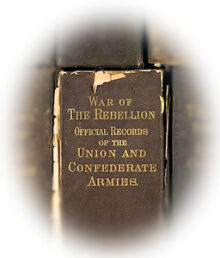HEADQUARTERS TROOPS NORTH CAROLINA ARSENAL,
Fayetteville, N. C., April 23, 1861.
COLONEL: I have to report that this arsenal was surrendered to the State of North Carolina yesterday, on demand of the governor of the State, which demand was sustained by a force of one thousand and fifty rank and file of State troops, well armed and equipped. The demand for the surrender being made, supported by such an overwhelming force, after consulting with Captain Bradford, the commander of the arsenal, we did not deem it necessary to offer a resistance, which in the end could be of no avail other than the total annihilation of my command (which at the time consisted of only forty-two effective muskets), as there was no probability, or possibility I may say, I could or would be re-enforced. I inclose a certified copy of the terms agreed upon between myself and the governor’s aide-de-camp with regard to the withdrawal of my command.
I have to-day ordered Lieutenant De Lagnel to Wilmington, N. C., for the purpose of procuring transportation for the troops to one of the northern posts.
Captain Bradford, the commander of the arsenal, and on whom the demand for surrender was made, has made an official report to the chief of his corps, which embraces all the particulars regarding the surrender.
………I am, sir, very respectfully, your obedient servant,
S. S. ANDERSON,
………Capt., Second Artillery, and Bet. Maj., U. S. A., Comdg. Troops.
Col. L. THOMAS,
………Adjutant-General U. S. Army, Washington City, D. C.
[Inclosure.]
Duplicate of the terms agreed upon between Maj. S. S. Anderson, Second Artillery, and Warren Winslow, esq., on the part of Governor Ellis, for the withdrawal of the United States forces now stationed at the North Carolina Arsenal, in Fayetteville, N. C., and the transfer of the United States property to the State authorities..
1. The United States troops now composing the guard at the United States Arsenal shall be permitted to march out with their arms, and all of their personal and company property of every description whatsoever.
2. The subsistence stores necessary for their use hence to their ultimate destination shall be taken by them.
3. The United States troops now about to evacuate the arsenal at this place shall be permitted to salute (with twenty-one guns) their flag before it is lowered.
4. The company of United States troops now here shall be permitted to retain their quarters, and be unmolested therein, until arrangements can be made (which will be immediately done) for their removal.
5. A safe-conduct shall be given (pledging therefor the good faith and honor of the State of North Carolina) to the United States troops now evacuating the United States Arsenal, through the State of North Carolina, to the coast; nor shall they be molested in their property or person while within the limits of the State or the waters thereof.
6. Every facility for leaving the borders of North Carolina shall be afforded to the withdrawn command, nor shall any impediment be thrown in the way to prevent the accomplishment of this object.
7. In order to the preservation of a peaceful condition between the parties to these terms of agreement, it is agreed that while the withdrawing United States forces remain necessarily at the arsenal awaiting transportation, the present command will be permitted to act as a guard, for the sole purpose of preserving good order and decorum within their own command.
8. With a desire to avoid unnecessarily wounding and paining the feelings or sense of honor of the parties to these terms of agreement, no flag will be hoisted on the staff at the arsenal, or within the limits of the Government grounds, until the departure of the troops, excepting the necessary raising of the North Carolina, or Confederate flag, in token of evacuation by the one party and possession by the other party. On the part of the governor of North Carolina, these terms were fully assented to.
WARREN WINSLOW,
Aide-de-Camp.
S. S. ANDERSON,
Capt., Second Artillery, Bvt. Maj., U. S. A., Comdg. Troops.
FAYETTEVILLE, April 22, 1861.
